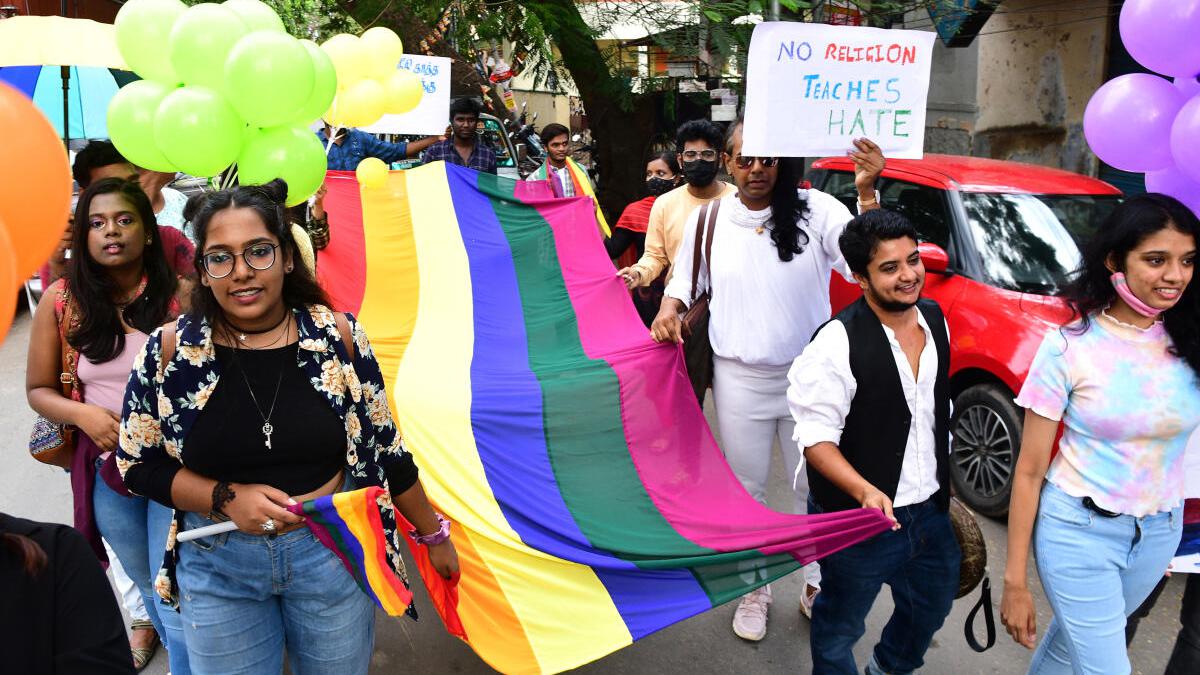
Amid the campaign for the Lok Sabha election, the State’s LGBTQIA+ community is opting to prioritise putting forth fundamental demands of candidates, instead of advanced policy suggestions.
The community, encompassing Lesbian, Gay, Bisexual, Transgender, Queer, Intersex, Asexual individuals, among others, voices a collective plea for basic necessities and inclusive policies towards healthcare, education, mental health, visibility of transmen and more. While the Tamil Nadu government pioneered free housing initiatives for the transgender community, challenges persist in combating social stigma, say members of the community.
Sunil Menon, founder of Sahodaran, an NGO working with the LGBT community, recounts an incident where a highly qualified engineer, who is a transperson, faced difficulties in finding an accommodation in Chennai due to her sexual orientation. “We were able to provide temporary accommodation, but Why should the community be denied the right to rent homes and have a space to call their own. Sensitising common people to the community must be one of the priorities,” Mr. Menon said.
Echoing these sentiments, Kalki Subramaniam, representative from the Southern region in the National Council for Transgender Persons, underscored the disparity between urban and rural areas in housing accessibility. “The real issue lies in rural areas where it is nearly impossible to rent or even buy a house,” she said.
Further, the release of a draft policy by the State government to promote LGBTQIA+ inclusion highlights progress, yet gaps in awareness remain to be addressed, as highlighted by several members. Speaking on the policy, the representatives express concerns over the dissemination of information and press for greater outreach efforts. “Ground reality is that of being disowned by family members and society at large. This needs to be addressed. For this, policies should be implemented faster,” she added. Education, too, is a focal point of the community’s demands, with calls for horizontal reservation in educational institutions for transgender individuals. While the proposed policy addresses this demand, clarity on reservation percentages is awaited.
Concerns of transmen
Additionally, transmen raise concerns about visibility and representation, stressing the need for inclusive policies that address their specific needs. Jayant Karunakaran, a Coimbatore-based gender rights activist, advocates for greater awareness and inclusion of transmen in policymaking initiatives. “A great way to bring about awareness is to first spread it in schools by revising middle school curriculum,” he said. Along the same lines, members of the lesbian and gay community stress the need for representation in educational materials as well. Calls for inclusive textbooks and storytelling aim to provide support and validation to LGBTQIA+ youth navigating their identities.“At 14, discovering my sexual orientation, I felt confused because biology lessons only depicted relations between a man and a woman. Textbooks must represent diverse identities to support teens facing such situations,” said Janani Prasad, a member of the community.
Additionally, community members seek the establishment of state-approved psychological counselling committees, that will in turn monitor counselling services in schools. Concerns also arise over the qualifications of counsellors, with calls for stringent monitoring mechanisms to ensure quality mental health support for students.
Addressing healthcare, the community mentions the importance of raising awareness about initiatives like the Ayushman Bharat Transgender Health Card.
Chennai-based gender rights activist Ramya Sudhakaran highlights the critical issue of accessibility to quality healthcare. “Though the scheme exists, individuals with diverse sexual identities face challenges in receiving sensitive care in hospitals due to lack of training among personnel,” she said.
As the State’s rainbow community navigates the complexities of societal acceptance and policy reform, the upcoming Lok Sabha election serve as a platform for advocacy. “After all, nothing can be achieved overnight but we are positive that strides are being made in the right direction,” Mr. Menon said.



